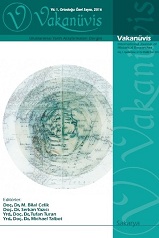Safevî Hâkimiyet Anlayışında Kutsiyet, Adalet ve Cesaret
Holiness, Justice and Bravery in Safavid Political Consideration
Author(s): Mehmet DağlarSubject(s): Political history, Islam studies, 16th Century, 17th Century, 18th Century, Penal Policy, Politics and Identity
Published by: Serkan YAZICI
Keywords: Safavids; Iran; Qizilbash; Ardabil; Shah;
Summary/Abstract: The politicization of a sufi order in Ardabil, over time laid the foundations of a new state in which the official sect was organized according to Shiite. Safavids emerged as an important power as a result of the enormous support of their followers in Anatolia. It is very important to understand what are the reasons behind the Safavids’ reign in Iran for over two centuries. Qizilbash disciples have been dominated in a great geography by dragging after political plans. The primary factor that connects these communities is the presence of their sheikh, which they consider sacred. People are connected more quickly to leaders who are not like them, who are in contact with supertnatural beings. Accordingly, it is an important factor for Safavids to act with informal connections in ensuring their legitimacy. One of the factors that reinforce their holiness is their invaluable help. In addition, drawing the image of a fair and brave ruler facilitated the control of Safavid rulers. Shahs used different punishment methods while trying to be fair rulers. These punishments were generally applied in a harsh and ruthles manner, trying to draw potrait that scares enemies. Safavid chronicles gave us important information about how Safavids’ legitimacy strengthened. Poems about rulers also contributed to the glorification of Safavid dynasty. The poems written about the kings provided important information about how the dominance formed was shaped.
Journal: Vakanüvis- Uluslararası Tarih Araştırmaları Dergisi
- Issue Year: 5/2020
- Issue No: 2
- Page Range: 685-702
- Page Count: 18
- Language: Turkish

